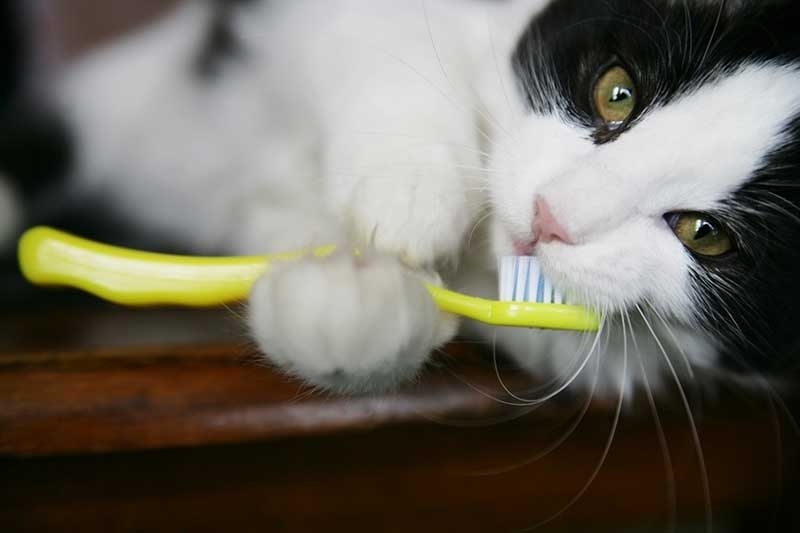Professional Veterinary Dental Care to Keep Your Pet's Smile Healthy

The condition of your pet's teeth is a good indicator of their overall health.
Just like annual exams, dental care is essential in helping your dog or cat stay healthy. When oral health is neglected, dental disease can result in tooth loss and severely affect other body systems.
You can maintain your pet’s oral health by brushing their teeth at home and getting regular dental checkups and cleanings.
Signs of Poor Oral Health
Many oral problems happen below the gum line and may be difficult for you to detect. However, signs of dental problems include:
- Bad breath
- Bleeding or swollen gums
- Tooth discoloration
- Poor appetite or weight loss
As dental disease progresses, other signs can include drooling, visible discomfort while chewing, and loose or missing teeth. Even if you’re using treats and chews to help control tartar, they’re not enough to keep dental disease in check.
Brushing your pet's teeth once a day is a great way to keep their mouth healthy and help prevent gum disease. If you have questions about caring for your pet’s teeth at home, we can recommend products and demonstrate the proper technique.
Animals are skilled at hiding their pain. By the time you notice signs of dental discomfort, your pet may have already developed an inflammation of the gums or other health problems. That’s why regular dental exams and periodic professional cleanings are so important.

Dental Exams and Cleanings
Our veterinarians look at your pet’s teeth and gums at each annual checkup for signs of plaque buildup and gum disease, but more comprehensive dental exams and professional cleanings are necessary. In general, cats and dogs should have a thorough exam and teeth cleaning at these ages to maintain good oral health:
- 4-5 years
- 7-8 years
- 11-12 years
It’s not just about keeping your pet’s teeth and gums healthy. Regular cleanings remove bacteria that can spread throughout the body and lead to heart disease and other serious health conditions if left untreated.
What to Expect From Your Pet’s Dental Procedure
Because we want your pet to be safe and comfortable throughout their dental appointment, we perform the procedure under general anesthesia.
While your pet is asleep from the anesthesia, we’ll do a thorough oral exam. Your veterinarian will examine the teeth and gums for plaque, tartar, decay, and any loose, broken, or crowded teeth. They’ll also check for signs of periodontal disease.
We have the ability, if needed, to take dental X-rays and/or a CT scan to look for pockets of infection or signs of disease below the gum line. Doing this lets us determine if any teeth need to be extracted. Once we have a clear picture of your pet’s mouth, we address any issues identified during the exam and thoroughly scale and polish each tooth.
After the procedure, we’ll provide instructions for you to follow at home based on your pet’s specific needs.
Schedule Your Pet’s Dental Appointment
Ask about our preventive dental care and other dental services at your pet’s next exam, or call us at (989) 871-3521 to schedule an appointment.

